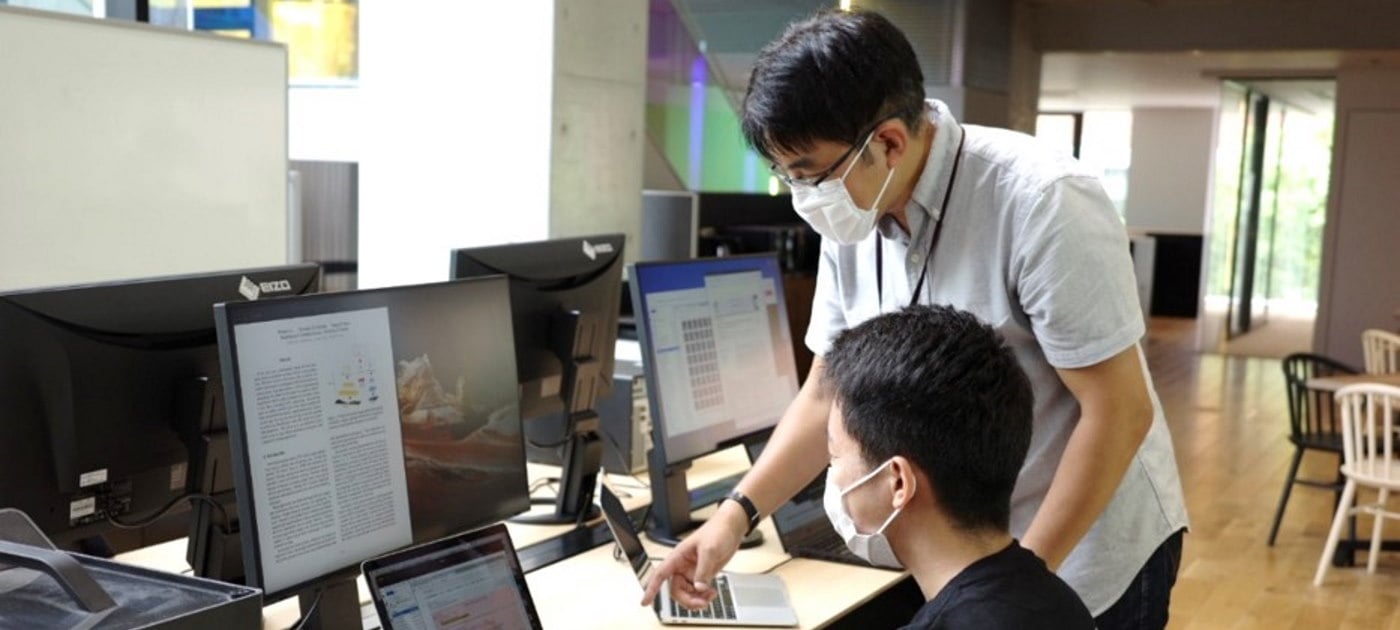Japan’s Kindai University has chosen Graphcore’s Intelligence Processing Unit (IPU) for its machine learning research programme drawing from the latest developments in neuroscience.
Led by Associate Professor Takashi Shinozaki, this fundamental research into brain-like information processing will be conducted by researchers from the Computational Neuroscience Lab team within the university’s Faculty of Informatics. Extensive technical guidance will be provided by Graphcore under its Academic Programme for industry-academia collaboration, and by local sales partner SCSK. Kindai is the first Japanese university to join the programme, which so far has supported research at world-leading institutions such as Stanford University, Imperial College London, the University of Oxford, CERN, and numerous others.
Shinozaki and his team will be using a Graphcore IPU-POD8 system to support the development of deep learning methods and algorithms that draw inspiration from the workings of the brain. Through their research, they hope to establish brain-like information processing as a foundation for regularly incorporating the latest insights from the field of neuroscience into next-generation AI technologies.
 “Brain-like information processing is attracting increasing attention worldwide as a next-generation field of AI, as it presents a potent and highly energy-efficient means of learning without large amounts of ground truth data,” explains Shinozaki.
“Brain-like information processing is attracting increasing attention worldwide as a next-generation field of AI, as it presents a potent and highly energy-efficient means of learning without large amounts of ground truth data,” explains Shinozaki.
The IPU represents the perfect companion for this kind of research: as an AI-specific processor with a unique multiple instruction, multiple data (MIMD) architecture, the IPU—like the human brain—can perform many different tasks simultaneously in parallel. The IPU-POD8 system will accelerate research at Shinozaki’s Computational Neuroscience Lab by delivering 2 PetaFLOPS of AI compute for training and inference.
The faculty expects that applying the IPU’s capabilities to research into brain-like information processing will enable Shinozaki and his team to drive dramatic progress in research across a wide range of applications, including the development of new approaches to analysing medical and IoT data, and applied research using transformer models.
"We are very excited to be using an AI-specialised system like Graphcore's IPU-POD8 within the Computational Neuroscience Lab in the Faculty of Informatics,” says Shinozaki. “Thanks to its architecture, the IPU is uniquely suited to brain-like information processing. We’re confident that this partnership will take our work to another level.”
“Through industry-academia collaboration with Graphcore, we hope to push new boundaries in AI while learning from and engaging with leading academics globally,” adds Shinozaki.
To learn more about Graphcore’s Academic Programme, click here.
